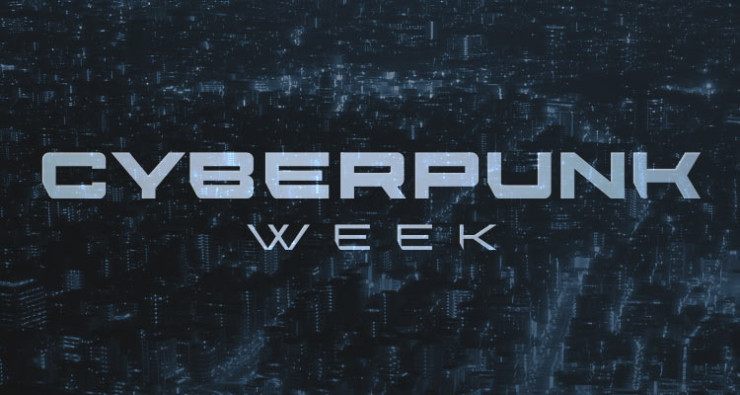A few decades ago the “cyberpunk” genre was purely fiction. Now, it is a reality that humanity struggles to navigate on a daily basis.
Bodyhacking, information networks, megacorps… these concepts, borne from fiction, now shape our lives in very serious ways. And just as reality grows from forward-looking stories, so too does new fiction grow in response to the present day. What is a cyberpunk, or even “post-cyberpunk,” story when that is the world you live in?
Welcome to Tor.com’s Cyberpunk Week, where we’ll be delving into classics of this sub-genre as well as newer works, and tracing the evolution of what being “cyberpunk” or “post-cyberpunk” means. From the work of William Gibson to that of Pat Cadigan, Marge Piercy, and Chris Moriarty to more recent works from authors like S.B. Divya, Malka Older, Nisi Shawl, and more, we’re hoping to trace some of the key themes running through cyberpunk fiction and beyond, into the realm of fashion, film, technology, and art.
In our exploration, three important aspects of cyberpunk become apparent:
- Administration: Much of cyberpunk fiction drew inspiration from corporate structures that were only just beginning to solidify in the late 20th century, and what those stories extrapolated out towards isn’t too different from what we experience now in the early 21st century. Cyberpunk and post-cyberpunk fiction is uniquely suited to exploring the intricacies of the systems that govern us, whether those systems are controlled by corporations, governments, or the people themselves. Information is the currency of cyberpunk, and increasingly the currency of the present day. How can we use it to make something better? How should we use it?
- Identity: Information technology is on the cusp of merging the biological and the mechanical into one seamless being, but what then does that being become? What is a person who can exist outside their body? Is there a purpose to gender and race classification? Especially when we are capable of creating programming that can think for itself, and does not require a gender or race? We live in an age where a person can fine-tune their appearance to a degree never before experienced, and cyberpunk fiction is at the forefront of imagining how a humanity consisting entirely of self-fashioned people works.
- Culture and Commerce: We tell stories, regardless of form or circumstance, so what stories are told by those living in our world; a world imagined by cyberpunk fiction? What appeals to us?
Join us this week as we feature stories, explorations, and more revolving around this timely sub-genre of science fiction. We’ll be updating Tor.com several times a day with new content, and you can follow it all through this index.
Onward!










